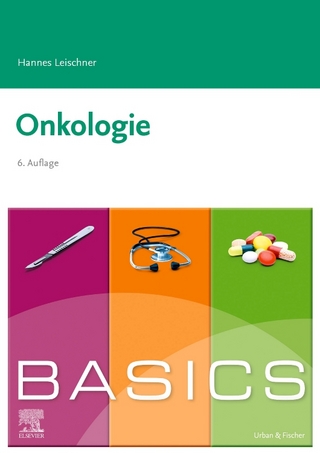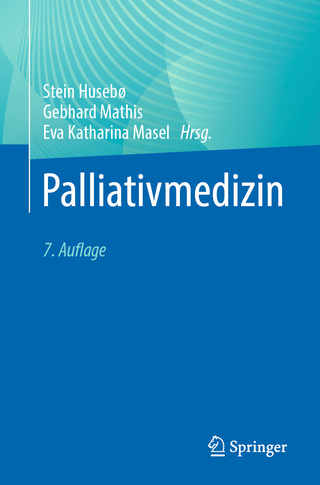
Indigenous and Tribal Peoples and Cancer
Springer International Publishing (Verlag)
978-3-031-56805-3 (ISBN)
- Noch nicht erschienen - erscheint am 23.08.2024
- Versandkostenfrei innerhalb Deutschlands
- Auch auf Rechnung
- Verfügbarkeit in der Filiale vor Ort prüfen
- Artikel merken
Although cancer survival has improved markedly in developed countries in recent decades, not all groups have benefited equally. In particular, Indigenous and Tribal peoples continue to have poorer cancer outcomes than their non-Indigenous counterparts. The available evidence suggests these disparities are linked to a complex combination of factors, including higher incidence of cancers associated with a high case fatality, later stage of diagnosis, reduced access to cancer treatment, and poorer overall health. Much research is underway to explore approaches to improving health system responses for Indigenous and Tribal peoples. A developing evidence base is supporting effective translation of knowledge into practice. This book offers a global perspective on this evidence base, written from Indigenous perspectives.
This book is the first comprehensive publication to report on cancer incidence, mortality, prevalence, survival, and inequities for Indigenous and Tribal peoples globally, with the aim of enhancing global efforts to improve outcomes for these populations. Its content and approach are led by Indigenous researchers with international reputations in health and cancer research. Chapters provide important information and data to support Indigenous-specific, targeted cancer awareness and early detection campaigns. This book goes beyond a discussion of the issues and challenges in Indigenous health, with a strengths-based approach to discussing successful health interventions, research projects, research translation, and living well - both with and beyond cancer.
This is an open access book.
Gail Garvey was among the first researchers to recognize the substantial impact of cancer on Aboriginal and Torres Strait Islander people, and her work has contributed greatly to key policy and practice change to improve their cancer outcomes. She is a Kamilaroi woman with wide experience and expertise in leading successful national research programs and she plays a leading role globally in cancer and Indigenous peoples.
Part 1: Indigenous and Tribal peoples' voices on cancer.- Chapter 1: Indigenous and Tribal peoples across the world.- Chapter 2: Indigenous health paradigms.- Chapter 3: Cultural determinants of health.- Chapter 4: Health impacts of colonization and dispossession.- Chapter 5: Indigenous and Tribal peoples' perspectives on health and wellbeing.- Chapter 6: Cultural safety policies and frameworks.- Part 2: Inequities in cancer.- Chapter 7: First Nations cancer statistics, outcomes, and projections.- Chapter 8: Health system inequities.- Chapter 9: Racism and its impacts on health and wellbeing.- Chapter 10: Data deficiencies, under-reporting, and data linkage.- Chapter 11: Cancer screening participation, challenges, and experiences.- Chapter 12: Lifestyle factors - risks and protective behaviors.- Chapter 13: Social inequities.- Chapter 14: Geographical influences.- Part 3: Cancer survivorship.- Chapter 15: Living well with and beyond cancer.- Chapter 16: Stories and perspectives from Indigenous and Tribal peoples diagnosed with cancer.- Chapter 17: Stories and perspectives from families and caregivers.- Chapter 18: Advocates within communities, health systems, and policy environments.- Chapter 19: Support networks.- Part 4: Creating positive change.- Chapter 20: Research priorities.- Chapter 21: Research translation and projects that are making a difference.- Chapter 22: Health system challenges and cultural safety.- Chapter 23: Public health interventions and targeted campaigns.- Chapter 24: Building the health workforce.- Chapter 25: The role of health and patient navigators.- Chapter 26: Traditional medicine and approaches to treatment and care.- Chapter 27: Engaging with the community.- Chapter 28: Indigenous leadership and data sovereignty.- Chapter 29: Living well with cancer.- Chapter 30: Cancer control policies and frameworks.- Part 5: Emerging issues and technologies.- Chapter 31: Genomics.- Chapter 32: Technology and cancer care.- Chapter 33:Personalized medicine.- Chapter 34: New approaches to screening.- Chapter 35: Biobanking.
| Erscheint lt. Verlag | 23.8.2024 |
|---|---|
| Mitarbeit |
Chef-Herausgeber: Gail Garvey |
| Zusatzinfo | Approx. 300 p. |
| Verlagsort | Cham |
| Sprache | englisch |
| Maße | 155 x 235 mm |
| Themenwelt | Medizin / Pharmazie ► Gesundheitswesen |
| Medizin / Pharmazie ► Medizinische Fachgebiete ► Onkologie | |
| Medizin / Pharmazie ► Studium | |
| Schlagworte | Aboriginal Peoples • Cancer Control Policies • Cancer Health Disparities • Cancer Survivorship • Cultural safety • Determinants of Health • First Nations • Holistic Health • Indigenous and Tribal Peoples • open access |
| ISBN-10 | 3-031-56805-2 / 3031568052 |
| ISBN-13 | 978-3-031-56805-3 / 9783031568053 |
| Zustand | Neuware |
| Haben Sie eine Frage zum Produkt? |
aus dem Bereich


